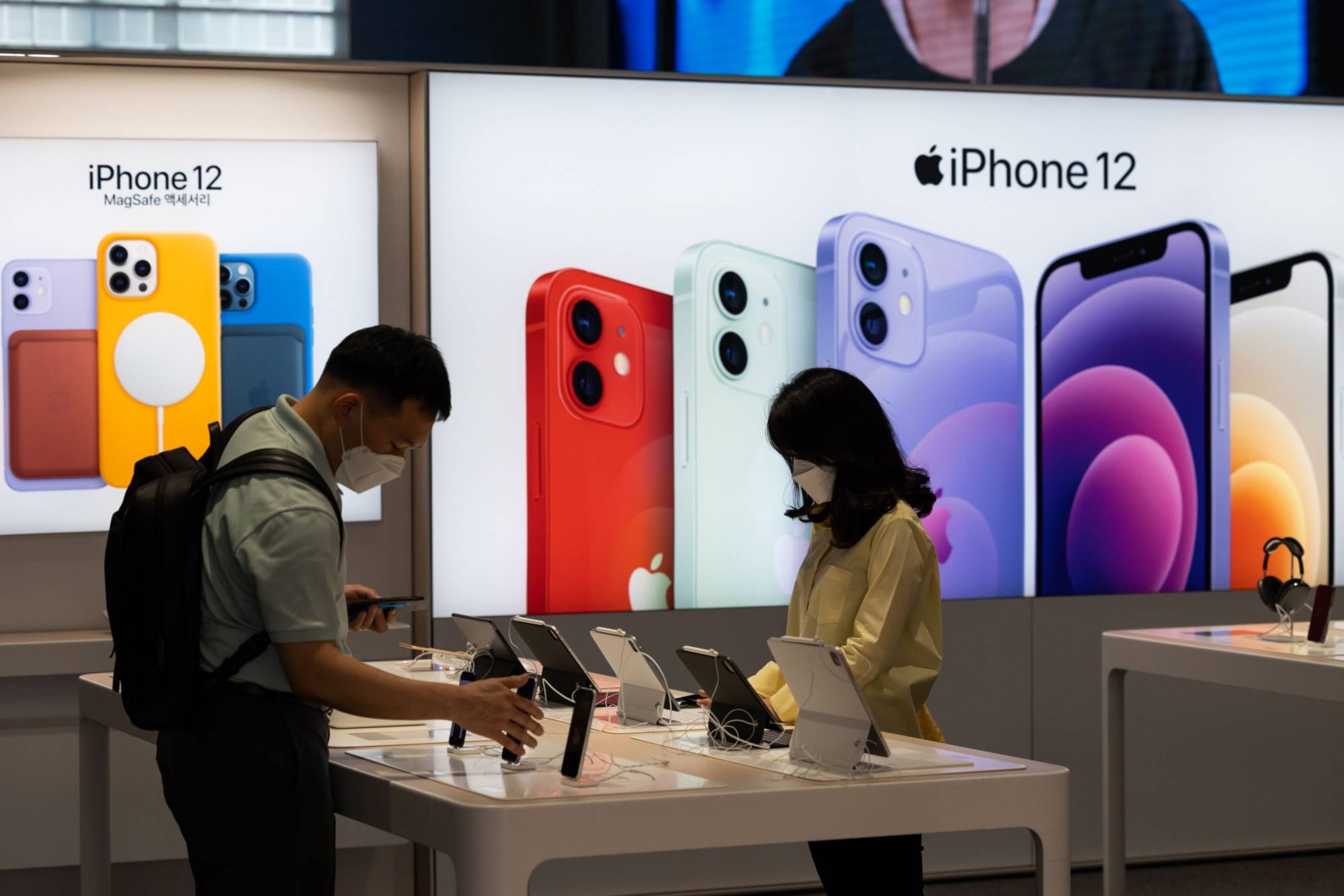South Korea’s latest actions against foreign internet giants and local upstarts are drawing parallels with recent crackdowns in China. In reality there’s little to suggest that Seoul has the muscle to hit out at big companies, or the desire to flex it.
Both Apple Inc. and Alphabet Inc.’s Google were on the receiving end of South Korea’s legislative wrath last month, thanks to a new anti-monopoly law that prohibits companies from forcing software developers to use the payment platforms tied to their app stores. Users should be given a choice, lawmakers decreed. (A similar debate was playing out in a U.S. court.) Separately, Google was also recently hit with a $177 million fine for preventing device makers such as Samsung Electronics Co. and LG Electronics Inc. from developing or modifying versions of the U.S. company’s ubiquitous Android operating system.
Western behemoths aren’t the only ones copping it. Kakao Corp. and Naver Corp., the nation’s largest internet and messaging providers, have been pilloried by lawmakers, antitrust regulators and financial authorities over a range of supposed sins, including their market dominance, share-listing valuations and fintech product offerings. While their products are ubiquitous in Korean society, the businesses behind them lack the size and power enjoyed by counterparts in China or even the U.S., which have also been under fire.



















With your current subscription plan you can comment on stories. However, before writing your first comment, please create a display name in the Profile section of your subscriber account page.